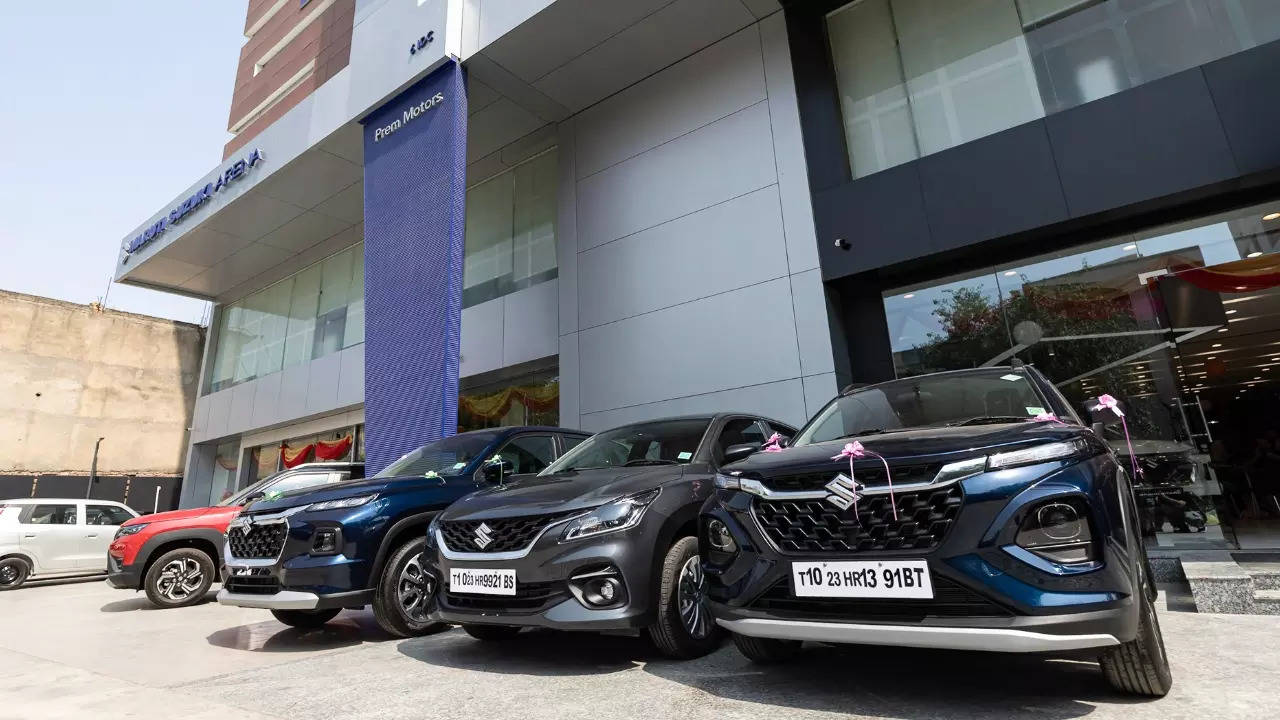“We expect the industry growth to be strong in the festive season and for the financial year the industry is likely to touch 4 million. The electrification trend is set to strengthen further, with multiple offerings in the market, ranging from affordable to highly aspirational cars and on the back of policy support. We will continue to stay agile and strengthen our portfolio in ICE and in EVs. In FY24, we aim to continue to post growth on the back of new launches and strong demand for all our products.” Shailesh Chandra, Managing Director, Tata Motors Passenger Vehicles Ltd., and Tata Passenger Electric Mobility Ltd told TOI Auto.
Royal Enfield Himalayan 450 Review: Revolution, not Evolution! | TOI Auto
Among four wheelers, it is the compact SUV segment that has seen the highest growth, rising by 36.81 percent year-on-year in September 2023. According to Kaushik Madhavan, Vice President and Global Head, Automotive Advisory at MarketsAndMarkets, “The compact SUV segment will continue to grow well into 2024, I personally believe that it is going to be the single largest segment that will witness high growth rates in comparison to any other segment and this will continue in the short to medium term. Innovative features coupled with new products in the market place with competitive pricing, are going to drive the passenger vehicle and two-wheeler sales during the festive season and well into 2024.”
Among the wide ranges of compact SUVs sold in the country, the Hyundai Creta took the top spot, followed closely by the Maruti Suzuki Grand Vitara that has quickly risen to number two spot. The third highest selling model in the segment is the Kia Seltos. “As we enter the peak of the festive season in India, Hyundai Motor India registered a robust sales number of 55,128 units in the domestic market in the month of October. The recent announcement of standardizing of 6 airbags across all Hyundai models and variants has been extremely well received by our valued customers. Also, the supply situation is back to full normalcy and our network is geared up to delight customers with the delivery of their favourite Hyundai cars”. Tarun Garg, COO, Hyundai Motor India Ltd. said.
With the semiconductor shortage smoothening out in the course of 2023, the industry is poised to record bumper sales and the projections are strong. Giving further insight, Shashank Srivastava, Senior Executive Officer, Marketing and Sales, Maruti Suzuki India Limited (MSIL) told TOI Auto, “The festive season, which spans from August 17 to Bhai Dooj, has so far been good with growth of about 18% over last year. This period historically constitutes approximately 25-26% of the annual sales. Thus, the sales during the festival season this year is expected to cross the 1 million mark for the first time ever. The peak festival period of Navratri saw brisk business, leading to the highest-ever month in the Indian passenger vehicle industry. We are optimistic about our continued success, with Maruti Suzuki expected to contribute significantly to the industry’s projected annual sales of 41 to 41.3 lakh”.
While MSIL is optimistic about sustaining its growth, industry veteran, RC Bhargava, Chairman, Maruti Suzuki India Limited, recently warned that to sustain current growth levels, the industry needs to revive the entry-level small car segment as it has the potential to bring 1.5 million to 1.8 million two-wheeler users into the fold. “The importance of small cars coming back is that without them in India, we cannot sustain good growth levels in the car industry. Lately, the market has become a little distorted due to policy changes which have led to higher prices and small car buyers have had to postpone their car buying decisions.” Bhargava said. He further indicated that the industry needs to effectively revive the small car segment for practical results within the next two to three years, otherwise current growth levels may not last even six to seven years. While affordability and initial cost of purchase seem to be the major hurdle for young, first-time car buyers, creative finance schemes could help fill the gap.
Major car brands such as Maruti Suzuki, Hyundai and Toyota now offer monthly subscription schemes on their models. Typically under such a scheme, a car buyer essentially leases the vehicle from the company and does not have to worry about registration costs, maintenance costs and other expenses related with car ownership, except the cost of fuel which they incur based on their usage.

